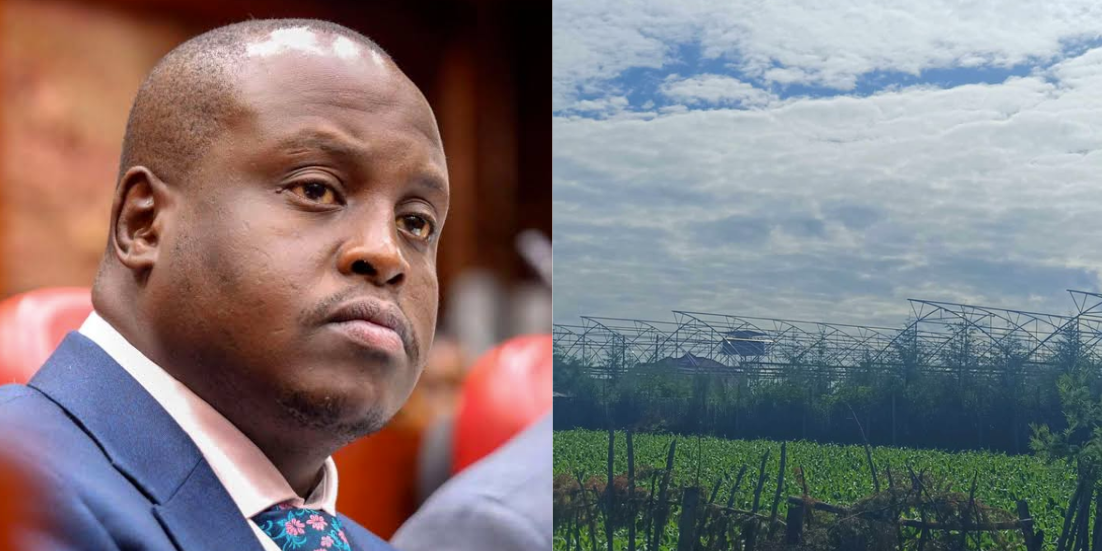Residents of Kapkuis and Kamaura, communities located near a major private development site in Uasin Gishu County, have raised serious concerns about ongoing projects that they believe pose environmental and safety risks.
The projects include an operational petrol station, extensive greenhouses under construction, and a large water storage facility being excavated nearby, all situated alarmingly close to residential homes, some as near as 50 meters.
According to members of the community, the developments are reportedly being undertaken by the family of a top government official, which they say has complicated their efforts to seek clarity and raise concerns, with those responsible meting out reluctance and evasiveness whenever approached.
Among those linked to these developments is Daniel Kiptoo Bargoria, the Chief Executive Officer of the Energy and Petroleum Regulatory Authority (EPRA), whose family reportedly owns large tracts of land where the projects are taking place.

Locals say that complaints to the National Environment Management Authority (NEMA) Eldoret branch have so far yielded little in the way of tangible action, despite the community’s repeated appeals and the initial issuance of a stop order that appears to have been blatantly ignored by the developers.
This sense of helplessness and growing frustration among residents has been further deepened by what they describe as an apparent air of impunity surrounding the developments, with many now openly questioning how construction of such magnitude, involving potentially hazardous infrastructure, can proceed uninterrupted despite formal intervention by the very regulatory bodies mandated to protect the public and the environment.
There is a prevailing suspicion within the community that the family behind the land, whose connection to the high-ranking government figure is widely known in the area, may be wielding undue influence over local authorities.

That perception has only been reinforced by the circulation of a widely shared audio recording, in which a woman, believed by locals to be a very close relative of Mr. Kiptoo, though her identity remains unconfirmed, is heard speaking with confidence and authority, insisting that the National Environment Management Authority has no objections to the ongoing developments, and affirming, almost defiantly, that the projects will proceed regardless of any community concerns.
For many, the tone of the recording and the ease with which regulations appear to be flouted are symbolic of a selective enforcement of the law that threatens to override the voices and rights of ordinary citizens.
Faced with what they perceive as a persistent failure by regional authorities to uphold environmental protections and enforce regulatory compliance, residents are now escalating their appeal to the national leadership of the National Environment Management Authority (NEMA), urging the agency’s headquarters in Nairobi to intervene directly and impartially in the matter.
Community members argue that the Eldoret branch of NEMA has either been rendered ineffective or is operating under external pressure, citing the continued progress of the developments despite the existence of a stop order as evidence of institutional paralysis or, worse still, quiet complicity.
They are calling for a full environmental audit of the ongoing activities, an independent investigation into the handling of the matter by local enforcement agencies, and the immediate suspension of all further construction until a comprehensive public participation process is conducted, with the inclusion of affected households, civil society groups and relevant technical experts.











































